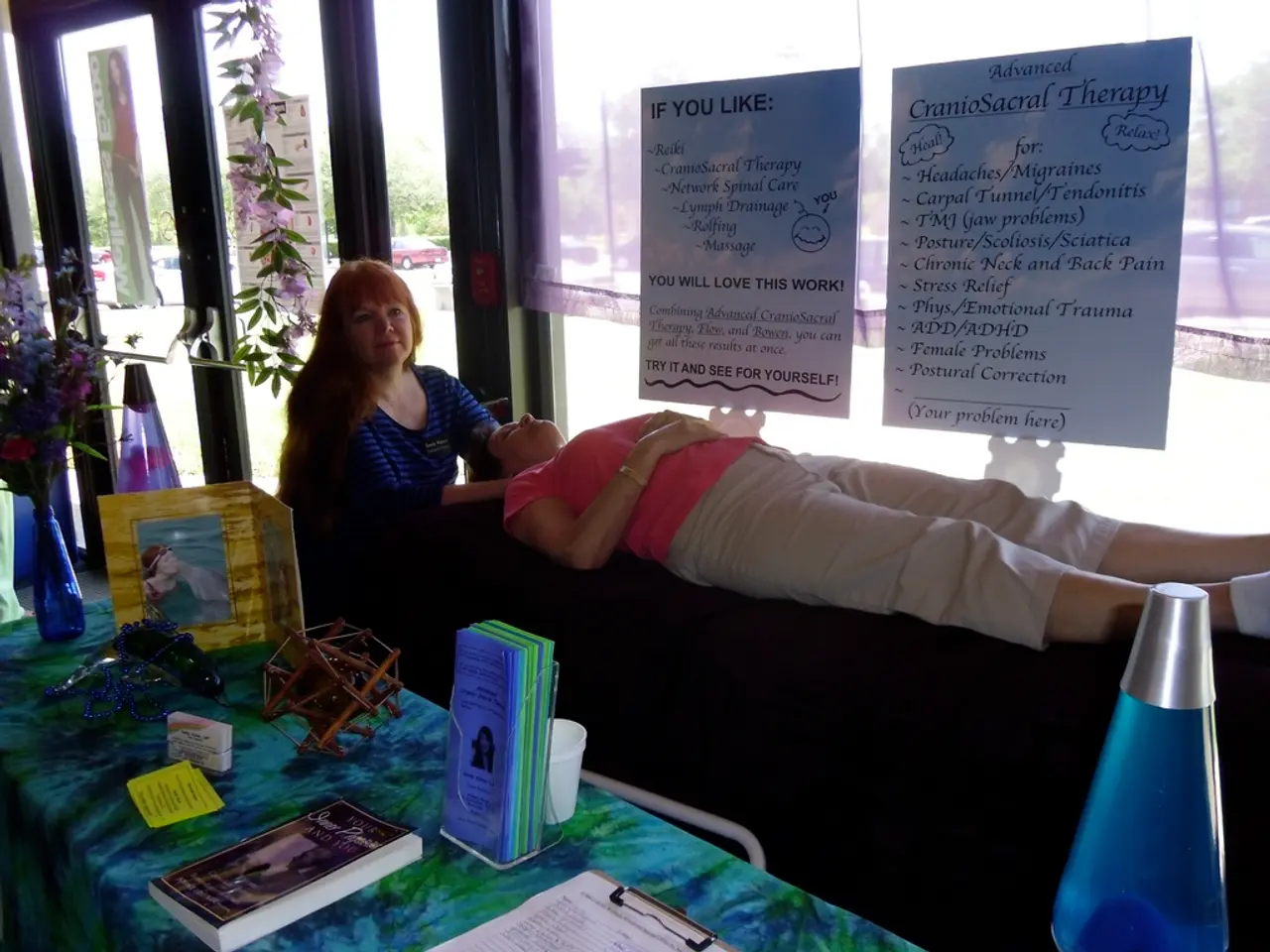Hormone Therapy: Pros and Cons Examined
Hormone therapy (HT) is a commonly used method to alleviate typical menopausal symptoms such as hot flashes, sleep problems, and mood swings. Different types of hormone therapies, each with distinct benefits and risks, are available for menopausal women.
### Types of Hormone Therapies
1. **Estrogen Therapy (ET)** - Prescribed primarily for women without a uterus, as estrogen alone can increase the risk of uterine lining overgrowth and cancer in women with a uterus. - Benefits include relief from hot flashes, vaginal dryness, and prevention of bone fractures linked to menopause. - Risks include an increased chance of mood disorders and sleep disturbances, as reported in real-world data; however, it is associated with a reduced risk of suicidal and self-injurious behaviors compared to combination therapy.
2. **Combination Therapy (Estrogen + Progestogens)** - Required for women with an intact uterus to protect against the risk of endometrial cancer caused by estrogen alone. - It is highly effective at managing menopausal symptoms like hot flushes and night sweats. - Risks include increased incidence of depressed mood and mood disturbances, and there is an overall elevated risk of deep vein thrombosis (DVT) and pulmonary embolism (PE), especially depending on the type and route of administration.
3. **Testosterone Therapy** - Used for addressing low sexual desire in menopausal women, though it is not FDA-approved for this indication. - Prescribed in lower doses than in men and can be given in creams or gels. - The benefits focus on enhancing libido and sexual function; however, risks and long-term safety profiles require more research and individualized medical consultation.
### Commonly Reported Benefits Across Therapies - Effective relief from menopausal symptoms such as hot flashes, night sweats, vaginal dryness, and prevention of bone loss. - Improved quality of life, especially for women undergoing surgical menopause or experiencing severe symptoms.
### Commonly Reported Risks Across Therapies - Increased risk of blood clots (DVT and PE), with risk magnitude influenced by the hormone type and administration route (systemic use tends to have higher risks than local). - Elevated risk of mood disorders and sleep disturbances, particularly with estrogen therapy alone or combined therapy. - Potential increased risk of breast cancer, especially with longer-term use and certain types of hormone combinations, though this depends on age and individual risk factors. - The necessity for personalized risk assessment considering age, health history, and symptom severity before initiation.
In conclusion, hormone therapy for menopausal symptoms offers significant symptom relief and quality-of-life improvement but carries variable risks, notably for cardiovascular events and mood effects. The choice of hormone type and regimen should be personalized based on individual health status and risk factors, ideally under specialist guidance. The decision for or against hormone therapy should always be made individually and after careful medical consideration. Women who have already had breast cancer should generally not receive hormone therapy. Bioidentical hormones, semi-synthetically derived from plant sources and matching the chemical structure of the body's own hormones exactly, are another option, but their effectiveness and safety are still being researched.
- Hormone therapy, such as Estrogen Therapy (ET) and Combination Therapy (Estrogen + Progestogens), is commonly used for menopausal women to alleviate symptoms like hot flashes, night sweats, and vaginal dryness.
- Science has identified that hormone therapies, including Estrogen Therapy and Combination Therapy, can also help prevent bone fractures linked to menopause.
- However, these therapies carry risks, such as an increased chance of blood clots (DVT and PE), mood disorders, and sleep disturbances, particularly with estrogen therapy alone or combined therapy.
- It's essential to note that longer-term use of hormone therapies, particularly certain types, may potentially increase the risk of breast cancer, though this depends on age and individual risk factors. Women who have already had breast cancer should generally not receive hormone therapy.




